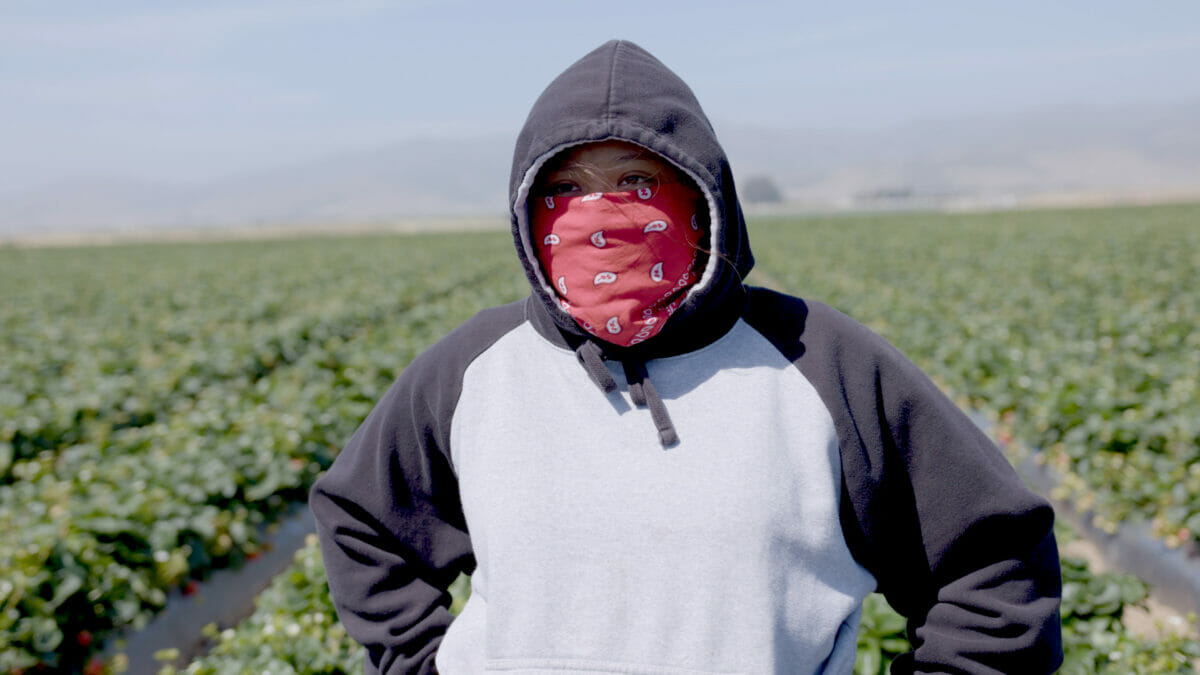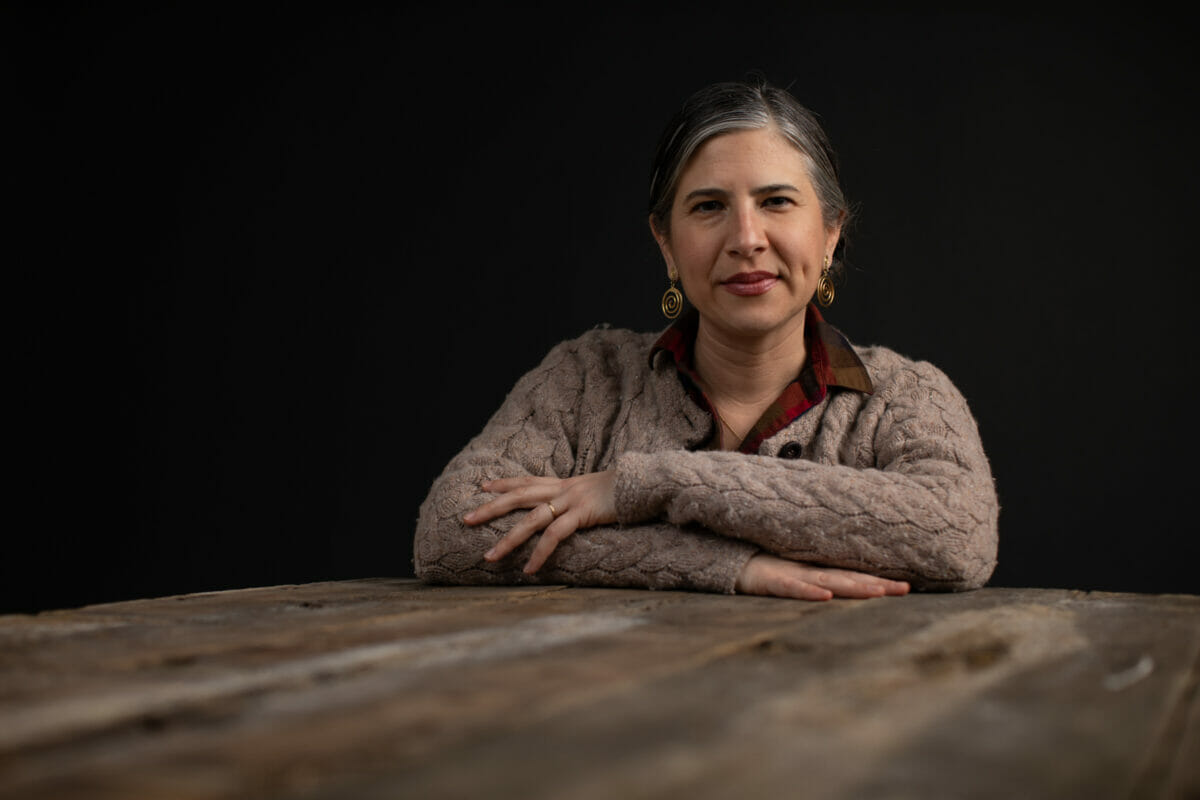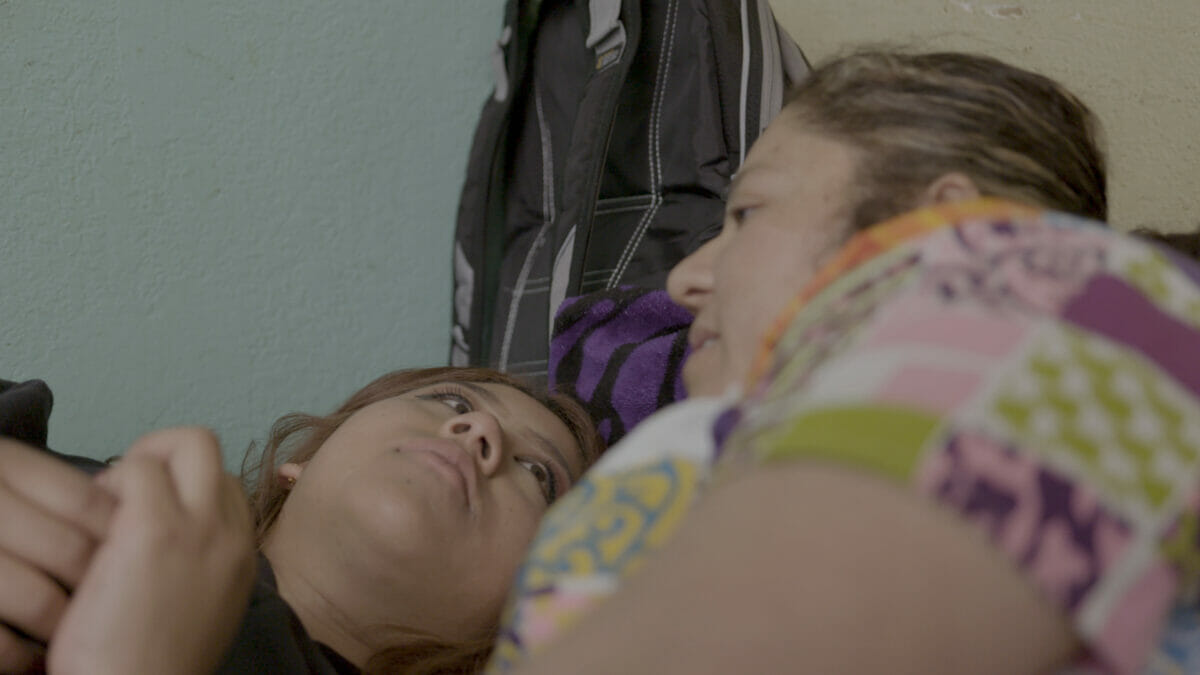In New Documentary, the Realities of the American Food System Are Laid Bare
Fruits of Labor follows one farm worker as she works two jobs to support her family while navigating high school.
In New Documentary, the Realities of the American Food System Are Laid Bare
Fruits of Labor follows one farm worker as she works two jobs to support her family while navigating high school.

Eighteen-year-old Ashley Pavon is the subject of a new documentary.by Gabriella Garcia-Pardo.
A new documentary, premiering on PBS’s POV series today, follows a California teenager with dreams of graduating high school and going to college who is forced to work in agriculture when ICE raids threaten her family.
Called Fruits of Labor, the documentary follows 18-year-old Ashley Pavon as she juggles working her two jobs while navigating school and family obligations. The film is centered in Watsonville, California, a coastal city near Santa Cruz, where strawberries are the main crop and where many residents are connected to the agricultural sector. To help support her family, Ashley finds jobs picking strawberries that are clumped tightly together in huge rows and packing frozen strawberries in a processing plant.
Although Ashley’s is just one story, filmmaker and director Emily Cohen Ibañez aimed to highlight the realities of so many agricultural workers, many of them teens like Ashley, who have to labor under harsh conditions while just barely scraping by. Ashley and her family live in a cramped house with another family, sharing one washroom among 12 people. It’s a reality for many Americans, says Cohen Ibañez. “We have half a million children today working in agricultural fields, despite it being one of the most dangerous forms of work in the United States.”

Throughout the film, there’s a sense of dread that permeates each scene. We watch as Ashley shops for a prom dress with a looming unease. We see Ashley and her mother, Beatriz, lying on a bed, talking about her nail polish, but things are tense. Even as Ashley smiles and hangs out with her boyfriend or her siblings or her friends, a heavy question hangs over every moment of the film and Ashley’s own life: Will Immigration and Customs Enforcement (ICE) officers show up today?
“There is a constant threat of not knowing when you could be swept up in a raid,” says Cohen Ibañez. “When Ashley came to me and said, ‘Oh, when I turn 18, I’m going to adopt my siblings in case my mom gets deported,’ I kind of freaked out.” The film shows Ashley and Beatriz meeting with a lawyer to walk through the process of making Ashley a legal guardian of her siblings in case the worst happens. (Beatriz has since started the process of citizenship and documentation).
Through Fruits of Labor, Cohen Ibañez wants to show the finesse involved in these jobs that are often dismissed as easy or unskilled. “We did a lot of slow motion in the field, and we had to ask Ashley to slow down to capture her picking the strawberries, because she moves so fast,” she says.
As the main breadwinner of the family, Ashley carries an incredible amount of responsibility on her shoulders, and Cohen Ibañez wanted to tap into that inner world in the film. Ashley narrates much of the documentary, talking about her hopes and dreams for the future—such as graduating high school, going to college and helping her siblings and her mother. She and Cohen Ibañez worked together to write the voiceover, and Ashley is credited as co-writer of the film. “It was very intentional to have Ashley be a part of the authorship of her own story,” says Cohen Ibañez. “I wanted this perspective of the complex young woman, and I wanted to show the universal struggles of a teenager coming of age, but within her particular situation and within the precarity of this contemporary moment.”

Cohen Ibañez honed in on the little things that make up teenage-hood today, “whether it’s finding the right prom dress or worrying about your grades or falling in love for the first time and the teenage reflections on one’s existence.” At the same time, it’s clear that Ashley carries burdens that other teens do not. She’s not sure if she’ll graduate high school, for instance, because she often misses class to work her two jobs. She takes on the responsibility of caring for and financially supporting her younger siblings. She works to cultivate a community garden for people in her community, especially welcoming undoumented immigrants to join in the process. “I was impressed by her, and I was drawn towards her,” Cohen Ibañez says. “I loved learning her view on berries, for example, that her ancestors lived with the wild berries; I thought that was beautiful.”
Cohen Ibañez hopes that people watching the film will think deeply about the food chains on which we all rely and about who is involved at each step of the process. “To me, the food system is working for a very small percentage of people, but for the majority of us, it’s a broken system,” she says. “This is essential labor. We need it. Without farmworkers, we’re not going to make it. We aren’t going to grow all our food. It is great to garden. I love gardening, but most of us don’t have the capacity and the bandwidth to grow all of our food we need.”
The slice of life that Fruits of Labor explores underscores the need to elevate agricultural jobs and see farm workers as essential to both the economy and local communities. “Give that work the dignity and respect they deserve. A living wage, good bathrooms, hazard pay. We have these wildfires now [where farmworkers] are getting asthma and health problems,” says Cohen Ibañez. “This is treating people as if they’re not full human beings. We need to change that.”
Fruits of Labor debuts on PBS today, and is available for streaming on pbs.com.
Follow us

This work is licensed under a Creative Commons Attribution-NoDerivatives 4.0 International License.
Want to republish a Modern Farmer story?
We are happy for Modern Farmer stories to be shared, and encourage you to republish our articles for your audience. When doing so, we ask that you follow these guidelines:
Please credit us and our writers
For the author byline, please use “Author Name, Modern Farmer.” At the top of our stories, if on the web, please include this text and link: “This story was originally published by Modern Farmer.”
Please make sure to include a link back to either our home page or the article URL.
At the bottom of the story, please include the following text:
“Modern Farmer is a nonprofit initiative dedicated to raising awareness and catalyzing action at the intersection of food, agriculture, and society. Read more at <link>Modern Farmer</link>.”
Use our widget
We’d like to be able to track our stories, so we ask that if you republish our content, you do so using our widget (located on the left hand side of the article). The HTML code has a built-in tracker that tells us the data and domain where the story was published, as well as view counts.
Check the image requirements
It’s your responsibility to confirm you're licensed to republish images in our articles. Some images, such as those from commercial providers, don't allow their images to be republished without permission or payment. Copyright terms are generally listed in the image caption and attribution. You are welcome to omit our images or substitute with your own. Charts and interactive graphics follow the same rules.
Don’t change too much. Or, ask us first.
Articles must be republished in their entirety. It’s okay to change references to time (“today” to “yesterday”) or location (“Iowa City, IA” to “here”). But please keep everything else the same.
If you feel strongly that a more material edit needs to be made, get in touch with us at [email protected]. We’re happy to discuss it with the original author, but we must have prior approval for changes before publication.
Special cases
Extracts. You may run the first few lines or paragraphs of the article and then say: “Read the full article at Modern Farmer” with a link back to the original article.
Quotes. You may quote authors provided you include a link back to the article URL.
Translations. These require writer approval. To inquire about translation of a Modern Farmer article, contact us at [email protected]
Signed consent / copyright release forms. These are not required, provided you are following these guidelines.
Print. Articles can be republished in print under these same rules, with the exception that you do not need to include the links.
Tag us
When sharing the story on social media, please tag us using the following: - Twitter (@ModFarm) - Facebook (@ModernFarmerMedia) - Instagram (@modfarm)
Use our content respectfully
Modern Farmer is a nonprofit and as such we share our content for free and in good faith in order to reach new audiences. Respectfully,
No selling ads against our stories. It’s okay to put our stories on pages with ads.
Don’t republish our material wholesale, or automatically; you need to select stories to be republished individually.
You have no rights to sell, license, syndicate, or otherwise represent yourself as the authorized owner of our material to any third parties. This means that you cannot actively publish or submit our work for syndication to third party platforms or apps like Apple News or Google News. We understand that publishers cannot fully control when certain third parties automatically summarize or crawl content from publishers’ own sites.
Keep in touch
We want to hear from you if you love Modern Farmer content, have a collaboration idea, or anything else to share. As a nonprofit outlet, we work in service of our community and are always open to comments, feedback, and ideas. Contact us at [email protected].by Emily Baron Cadloff, Modern Farmer
October 4, 2021
Modern Farmer Weekly
Solutions Hub
Innovations, ideas and inspiration. Actionable solutions for a resilient food system.
ExploreExplore other topics
Share With Us
We want to hear from Modern Farmer readers who have thoughtful commentary, actionable solutions, or helpful ideas to share.
SubmitNecessary cookies are absolutely essential for the website to function properly. This category only includes cookies that ensures basic functionalities and security features of the website. These cookies do not store any personal information.
Any cookies that may not be particularly necessary for the website to function and are used specifically to collect user personal data via analytics, ads, other embedded contents are termed as non-necessary cookies.
Have a look at Canada’s screwed-up immigration regulations……………………..just walk across the border.
I live in the area, have seen people picking strawberries on many occasions. Am sorry to see what Ashley is going through. I favor immigration – legal immigration. The more, the merrier. Just come here legally. My wife came here legally, as did my son’s wife. We filled out the papers, went through the citizenship process. The process works. Sadly, Ashley’s plight could have been avoided if only her mother had decided to come here legally. She knew the likely consequences. The USA, as a sovereign country, has the right and duty to protect its’ borders. Try going to any… Read more »